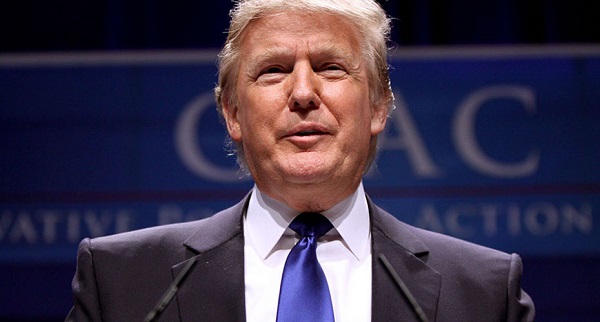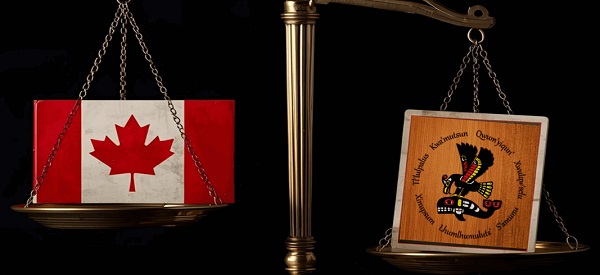Business
Trump’s steel tariffs will hit BC hard

From Resource Works
BC is a huge source of mettalurgical coal, which is used to make steel.
US President Donald Trump’s announcement of 25 percent tariffs on imported steel will send shockwaves through many industries but one of the hardest hit will be British Columbia’s coal industry. As the largest exporter of metallurgical coal in Canada, B.C. relies heavily on global steel production and these tariffs will reduce demand, destabilize prices and disrupt supply chains.
Unlike thermal coal used to generate electricity, over 95 percent of coal mined in British Columbia is metallurgical coal or coking coal. This coal is used to produce coke, a carbon rich fuel used to remove oxygen from iron ore in blast furnaces. Steel production is a big part of global industrial activity and B.C.’s coal industry exists because of that demand.
According to provincial data coal is B.C.’s most valuable mined commodity, generating billions of dollars in revenue each year. B.C. coal is exported mainly to Asian markets like Japan, China, South Korea and India but the US steel industry has been a customer too. A reduction in US steel production due to tariffs could disrupt global steel trade flows and reduce demand for metallurgical coal from B.C. miners.
Trump’s latest 25 percent tariffs on all steel imports is a repeat of what happened in 2018 when similar tariffs were introduced. At that time the tariffs increased costs for US manufacturers and led to retaliatory tariffs from Canada and other trade partners. The economic impact was big – Canadian steel and aluminum producers lost business and retaliatory tariffs were imposed on a range of American goods. The 2018 tariffs also didn’t revitalize US steel production which was 1 percent lower in 2024 than 2017 despite those protectionist measures.
This time the tariffs will hit even harder. Unlike 2018 when Canada and Mexico were eventually exempted after negotiations, this time Trump has said his tariffs will apply to “everybody”. That means the Canadian steel industry will once again be caught in the crossfire and with it the metallurgical coal industry that supplies it.
If Trump’s steel tariffs prevent U.S. manufacturers from importing steel due to higher costs, steel production will decline. That will mean lower global demand for metallurgical coal including B.C.’s high grade supply. B.C. coal miners are already facing challenges from environmental policies, competition from other jurisdictions and regulatory delays. A downturn in demand from steel producers could be the trigger for more mine closures or reductions in production.
Plus these tariffs could start another trade war. Canada retaliated in 2018 with tariffs on U.S. goods like orange juice and whiskey and similar measures may follow this time. The uncertainty will delay investment decisions in Canada’s mining sector especially for new projects or expansions that rely on stable steel demand.
The long term viability of metallurgical coal is already in question as the steel industry looks towards greener production methods like hydrogen based steelmaking. Sweden has already developed facilities that don’t require coking coal and while the transition to such technologies will take decades the latest trade disruptions could accelerate that shift.
Trump’s tariffs are meant to protect U.S. steel makers but history shows they often have the opposite effect, increasing costs for American manufacturers and economic instability for key trading partners. For B.C.’s coal industry the combination of declining steel demand, disrupted supply chains and potential trade retaliation puts the sector in a tough spot.
British Columbia’s coal industry is deeply connected to global steel production making it very exposed to Trump’s latest tariffs. The move will reduce demand for metallurgical coal, disrupt export markets and add more financial stress to the province’s miners. Given Trump’s track record on trade B.C. should prepare for economic uncertainty and look at diversification strategies to mitigate the impact of another round of U.S. protectionism.
Business
US government buys stakes in two Canadian mining companies

From the Fraser Institute
Prime Minister Mark Carney recently visited the White House for meetings with President Donald Trump. In front of the cameras, the mood was congenial, with both men complimenting each other and promising future cooperation in several areas despite the looming threat of Trump tariffs.
But in the last two weeks, in an effort to secure U.S. access to key critical minerals, the Trump administration has purchased sizable stakes in in two Canadian mining companies—Trilogy Metals and Lithium Americas Corp (LAC). And these aggressive moves by Washington have created a dilemma for Ottawa.
Since news broke of the investments, the Carney government has been quiet, stating only it “welcomes foreign direct investment that benefits Canada’s economy. As part of this process, reviews of foreign investments in critical minerals will be conducted in the best interests of Canadians.”
In the case of LAC, lithium is included in Ottawa’s list of critical minerals that are “essential to Canada’s economic or national security.” And the Investment Canada Act (ICA) requires the government to scrutinize all foreign investments by state-owned investors on national security grounds. Indeed, the ICA specifically notes the potential impact of an investment on critical minerals and critical mineral supply chains.
But since the lithium will be mined and processed in Nevada and presumably utilized in the United States, the Trump administration’s investment will likely have little impact on Canada’s critical mineral supply chain. But here’s the problem. If the Carney government initiates a review, it may enrage Trump at a critical moment in the bilateral relationship, particularly as both governments prepare to renegotiate the Canada-U.S.-Mexico Agreement (CUSMA).
A second dilemma is whether the Carney government should apply the ICA’s “net benefits” test, which measures the investment’s impact on employment, innovation, productivity and economic activity in Canada. The investment must also comport with Canada’s industrial, economic and cultural policies.
Here, the Trump administration’s investment in LAC will likely fail the ICA test, since the main benefit to Canada is that Canadian investors in LAC have been substantially enriched by the U.S. government’s initiative (a week before the Trump administration announced the investment, LAC’s shares were trading at around US$3; two days after the announcement, the shares were trading at US$8.50). And despite any arguments to the contrary, the ICA has never viewed capital gains by Canadian investors as a benefit to Canada.
Similarly, the shares of Trilogy Minerals surged some 200 per cent after the Trump administration announced its investment to support Trilogy’s mineral exploration in Alaska. Again, Canadian shareholders benefited, yet according to the ICA’s current net benefits test, that’s irrelevant.
But in reality, inflows of foreign capital augment domestic savings, which, in turn, provide financing for domestic business investment in Canada. And the prospect of realizing capital gains from acquisitions made by foreign investors encourages startup Canadian companies.
So, what should the Carney government do?
In short, it should revise the ICA so that national security grounds are the sole basis for approving or rejecting investments by foreign governments in Canadian companies. This may still not sit well in Washington, but the prospect of retaliation by the Trump administration should not prevent Canada from applying its sovereign laws. However, the Carney government should eliminate the net benefits test, or at least recognize that foreign investments that enrich Canadian shareholders convey benefits to Canada.
These recent investments by the Trump administration may not be unique. There are hundreds of Canadian-owned mining companies operating in the U.S. and in other jurisdictions, and future investments in some of those companies by the U.S. or other foreign governments are quite possible. Going forward, Canada’s review process should be robust while recognizing all the benefits of foreign investment.
Business
Judges are Remaking Constitutional Law, Not Applying it – and Canadians’ Property Rights are Part of the Collateral Damage

By Peter Best
The worst thing that can happen to a property owner isn’t a flood or a leaky foundation. It’s learning that you don’t own your property – that an Aboriginal band does. This summer’s Cowichan Tribes v. Canada decision presented property owners in Richmond B.C. with exactly that horrible reality, awarding Aboriginal
title to numerous properties, private and governmental, situated within a large portion of Richmond’s Fraser River riverfront area, to Vancouver Island’s
Cowichan Tribes. For more than 150 years, these properties had been owned privately or by the government. The Cowichan Tribes had never permanently lived
there.
But B.C. Supreme Court Justice Barbara Young ruled that because the lands had never been formally surrendered by the Cowichans to the Crown by treaty, (there
were no land-surrender treaties for most of B.C.), the first Crown grants to the first settlers were in effect null and void and thus all subsequent transfers down
the chain of title to the present owners were defective and invalid.
The court ordered negotiations to “reconcile” Cowichan Aboriginal title with the interests of the current owners and governments. The estimated value of the
property and government infrastructure at stake is $100 billion.
This ruling, together with previous Supreme Court of Canada rulings in favour of the concept of Aboriginal title, vapourizes more than 150 years of legitimate
ownership and more broadly, threatens every land title in most of the rest of B.C. and in any other area in Canada not subject to a clear Aboriginal land surrender
treaty.
Behind this decision lies a revolution – one being waged not in the streets but in the courts.
In recent years Canadian judges, inspired and led by the Supreme Court of Canada, have become increasingly activist in favour of Aboriginal rights, in effect
unilaterally amending our constitutional order, without public or legislative input, to invent the “consult and accommodate” obligation, decree Aboriginal title and grant Canadian Aboriginal rights to American Indians. No consideration of the separation of powers doctrine or the national interest has ever been evidenced by
the Court in this regard.
Following the Supreme Court’s lead, Canadian judges have increasingly embraced the rhetoric of Aboriginal activism over restrained, neutral language, thus
sacrificing their need to appear to be impartial at all times.
In the Cowichan case the judge refused to use the constitutional and statutory term “Indian,” calling it harmful, thereby substituting her discretion for that of our
legislatures. She thanked Aboriginal witnesses with the word “Huychq’u”, which she omitted to translate for the benefit of others reading her decision. She didn’t
thank any Crown witnesses.
What seems like courtesy in in fact part of a larger pattern: judges in Aboriginal rights cases appearing to adopt the idiom, symbolism and worldview of the
Aboriginal litigant. From eagle staffs in the courtroom, to required participation in sweat lodge ceremonies, as in the Supreme Court-approved Restoule decision,
Canada’s justice system has drifted from impartial adjudication toward the appearance of ritualized, Aboriginal-cause solidarity.
The pivot began with the Supreme Court’s 1997 Delgamuukw v. British Columbia decision, which first accepted Aboriginal “oral tradition” hearsay evidence. Chief
Justice Lamer candidly asked in effect, “How can Aboriginals otherwise prove their case?” And with that question centuries of evidentiary safeguards intended
to ensure reliability vanished.
In Cowichan Justice Young acknowledged that oral tradition hearsay can be “subjective” and is often “not focused on establishing objective truth”, yet she
based much of her ruling on precisely such “evidence”.
The result: inherently unreliable hearsay elevated to gospel, speculation hardened into Aboriginal title, catastrophe caused to Richmond private and government property owners, the entire land titles systems of Canadian non-treaty areas undermined, and Crown sovereignty, the fount and source of all real property rights generally, further undermined.
Peter Best is a retired lawyer living in Sudbury, Ontario.
The original, full-length version of this article was recently published in C2C Journal.
-

 City of Red Deer1 day ago
City of Red Deer1 day agoPlan Ahead: Voting May Take a Little Longer This Election Day
-

 Crime17 hours ago
Crime17 hours agoFrance stunned after thieves loot Louvre of Napoleon’s crown jewels
-

 Uncategorized19 hours ago
Uncategorized19 hours agoNew report warns WHO health rules erode Canada’s democracy and Charter rights
-

 Media2 days ago
Media2 days agoCanada’s top Parliamentary reporters easily manipulated by the PMO’s “anonymous sources”
-

 Business1 day ago
Business1 day agoUS government buys stakes in two Canadian mining companies
-

 espionage2 days ago
espionage2 days ago“Suitcase of Cash” and Secret Meeting Deepen Britain’s Beijing Espionage Crisis
-

 Agriculture2 days ago
Agriculture2 days agoIs the CFIA a Rogue Agency or Just Taking Orders from a Rogue Federal Government?
-

 Energy20 hours ago
Energy20 hours agoMinus Forty and the Myth of Easy Energy



